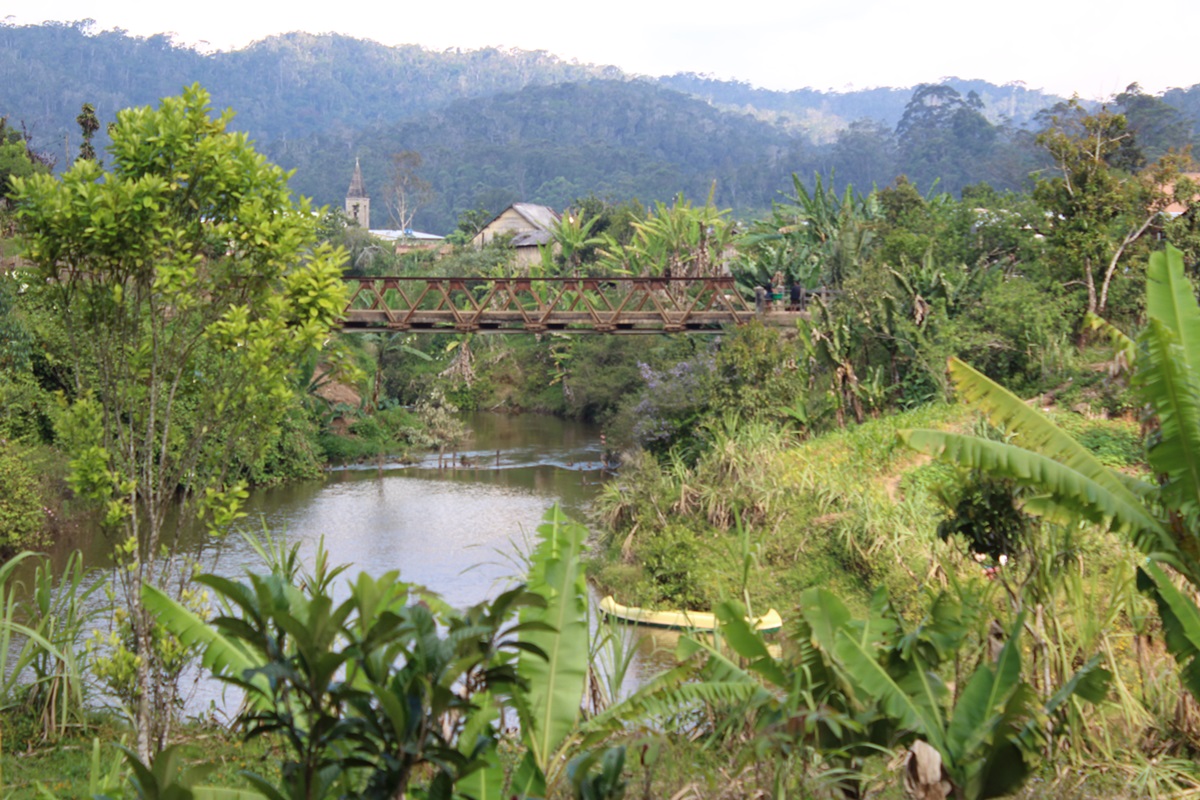Health
Offshore Decommissioning and the Environment

By Sonia de Vries
Competing interests between the exploitation of natural resources and the environmental devastation it entails, represents a real challenge for industry, country, civil society and environmentalists.
In the oil and gas sector, oil and gas installations, or platforms, have a lifespan and what to do with them on expiry creates a tremendous challenge for the stakeholders, given the ever-present risks associated with oil and gas operations in the context of domestic, regional and international law. Stakeholders include the country that licensed the installation and its operation, the owner/operator of the installation, as well as the neighbouring countries and the citizens of those countries. Not every oil or gas producing country has an effective legal framework dealing with decommissioning and concomitant environmental imperatives and in such instances, international law may not provide any recourse.
Decommissioning offshore oil and gas platforms presents inherent environmental and socio-economic impacts for which there is no single solution. Older structures that were designed and installed before various laws and regulations were enacted to govern their decommissioning, and some locations being prone to extreme weather conditions, are further complications. The process of decommissioning takes years to complete and that the act itself produces its own environmental hazards.
Decommissioning comprises several components, each subject to environmental considerations in respect of onshore impact, hazardous substances, waste management, energy usage and emissions, as well as marine impact. The environmental impact can be projected but not with absolute certainty.
A marine environmental impact might include the long-term effects of leaving parts of the structure in place, where abandoned components could result in the release of hydrocarbons up to 500 years or more into the future. In addition, structural components such as the platform legs can last around 300 years and the storage cells can still exist some 1000 years into the future. The structures could cause obstructions to ocean going vessels and fishermen in the area.
It is inevitable, however, that over time the platform legs become a part of the marine environment, providing protected breeding grounds for fish and rock dumps that protect sediment habitats. While the risk of an oil leak is ever present and demands appropriate monitoring, the vast CO2 emissions generated in deconstructing and repatriating components to shore for recycling should also be considered. Further, the removal of structures can impact on marine life, due in some cases to sediment disturbance and release of contaminants. Also, there are components that cannot be recycled which will be dumped in onshore landfills sorely needed for other purposes. Vast amounts of energy and emissions will inevitably be produced during decommissioning which would also have a detrimental environmental impact.
There are many criticisms aimed at leaving the structures where they are. As per Greenpeace, “the sea is not a dustbin”. In addition, some argue that taxpayers should not be subsidising enormous decommissioning costs and that all traces of the platforms should be removed. Ideally, one would expect complete removal of the structure but the reality is that decommissioning itself can be very destructive for the environment. There is no perfect solution or one that will satisfy everyone.
Reality requires a balancing of stakeholders’ interests and a comprehensive appreciation of the potential environmental consequences of decommissioning on a case by case basis, especially in respect of older platforms. Critical is a post-decommissioning regime for accountability, monitoring, pollution preparedness and mitigation strategies as well as ongoing technological development to further remove the inherent risk in a decommissioned platform.
Sonia de Vries is Partner, Baker McKenzie Johannesburg
Health
VP, Governor Hail Rite Foods’ Chairman for Trauma Centre Donation to OOUTH

By Modupe Gbadeyanka
The chairman of Rite Foods Limited, Mr Sulaiman Adebola Adegunwa, has been commended for donating an ultra-modern Trauma Centre to the Olabisi Onabanjo University Teaching Hospital (OOUTH) in Sagamu, Ogun State.
The facility, donated to mark his 80th birthday, is a one-stop trauma centre with all the medical equipment and healthcare personnel to handle about 2,000 trauma cases in a month, from the severe to the minor ones.
Speaking at the commissioning of the 50-bedded facility, named Sulaiman Adebola Adegunwa Trauma Centre, by the Vice President of Nigeria, Mr Kashim Shettima, on Saturday, April 5, 2025, it was stated that the centre would enhance healthcare delivery for accident victims and other trauma-related cases within Ogun and neighbouring states.
Mr Shettima noted that the provision of the healthcare facility was timely, as it aligns with President Bola Ahmed Tinubu’s agenda for upgrading the health institutions in the country.
He described the life of the donor as well lived, with significant impact in the society and immediate community, creating employment for the indigenes of Ogun State, through valuable business enterprises, like Rite Foods Limited and Ess-ay Holdings Limited, which has contributed to the growth of the state’s and national economy.
According to the VP, Mr Adegunwa has inscribed his name in gold, adding that the octogenarian believes in leaving legacies that lives for generation and this has prompted the trauma centre which will impact lives tremendously.
On his part, Governor Dapo Abiodun of Ogun State applauded the philanthropic initiative of Mr Adegunwa, saying he has demonstrated an unwavering commitment to the healthcare system of Ogun State, and that the trauma centre marks a significant milestone towards attaining that.
In her remark, the Chief Medical Director of OOUTH, Dr Oluwabunmi Fatungase, said the 50 bedded centre has been the desire of the management of the hospital, as the old 20 bedded accident and emergency centre is too small to accommodate accident victims within the state, which serves as a route for travellers traversing the different regions of the country, with a 41.5 percent accident rate.
She said it is a dream of over 20 years by various administrations come true as there is no General Hospital from Lagos to Benin and Ibadan to take care of accident victims, thereby making the trauma centre a well thought out project by Asiwaju Adegunwa.
On his part, Mr Adegunwa said, “Today, l am filled with immense joy as l reflect on Sulaiman Adebola Adegunwa Trauma Centre as another fulfilment of opportunity to serve a higher calling to give and serve.”
Health
Iwosan Investments, Mayo Clinic to Deliver World-class Healthcare Services

By Modupe Gbadeyanka
A partnership to advance high-quality patient-centred healthcare in Nigeria has been entered into between Iwosan Investments Limited and Mayo Clinic Global Consulting.
The aim is to advise and support Iwosan in delivering world-class healthcare services that will positively impact both local and regional communities.
This includes the enhancement of Iwosan’s hospital network starting with Iwosan Lagoon Hospitals and the development and integration of the Lagos Medipark Hospital.
Mayo Clinic Global Consulting will to provide strategic advice on organizational objectives and clinical practice.
Under the consulting contract, Iwosan will work with Mayo Clinic experts on several projects to advance high-quality, patient-centred healthcare in Nigeria.
Mayo Clinic is a global leader in serious and complex healthcare. Mayo Clinic Global Consulting is designed to share Mayo Clinic’s unique, comprehensive capabilities and knowledge.
The focus of this engagement is to help the Iwosan network improve administrative efficiencies and effectiveness and to enhance medical practice and patient care through the application of Mayo Clinic’s integrated clinical care and practice models.
“This marks a significant milestone in our commitment to delivering exceptional healthcare services to the people of Nigeria.
“With guidance from Mayo Clinic Global Consulting, we are confident in our ability to set new benchmarks in healthcare excellence in our region,” the chief executive of Iwosan Investments, Mrs Fola Laoye, stated.
Iwosan Investments is a healthcare investment company with an ongoing commitment to revolutionize healthcare delivery in Nigeria.
Health
NAFDAC Intensifies Efforts to Block Substandard Products from China, India

By Adedapo Adesanya
The National Agency for Food and Drug Administration and Control (NAFDAC) is increasing efforts to block the entry of substandard and counterfeit products into Nigeria, particularly from China and India, the country’s two largest pharmaceutical trade partners.
This was revealed by Mrs Mojisola Adeyeye, the Director-General of the agency, emphasised that the Clean Report of Inspection and Analysis (CRIA) scheme has significantly strengthened regulatory control over imports from these nations.
The two nation’s account for 60 per cent of Nigeria’s pharmaceutical imports and yet, there is a lot of counterfeit and substandard medicines from these countries.
She said, “Because most of these drugs come from China and India, the CRIA scheme is operational in those two countries,” adding that, “It ensures that only safe and high-quality products are shipped while preventing the export of substandard and counterfeit products.”
She note that NAFDAC has appointed and accredited CRIA agents in China and India to conduct rigorous pre-shipment inspections to tackle the issue.
In addition to appointing CRIA agents in China and India, NAFDAC is collaborating with COTECNA, a global testing, inspection, and certification service provider, to enhance quality control measures.
Mrs Adeyeye urged stakeholders to engage with these CRIA agents before shipping any consignment to Nigeria, saying, “I strongly encourage you to engage with CRIA agents before shipping any consignment–that is, to our stakeholders– from China, India, or Nigeria. You have the flexibility to choose from any of the listed CRIA agents to ensure compliance and safeguard the quality of imported products.”
NAFDAC also introduced an electronic platform, the Port Inspection Data Capture and Risk Management System (PIDCARMS), to enhance document verification and streamline inspection processes.
Mrs Adeyeye noted that CRIA agents will ensure that rejected shipments carrying drugs will not find their way to the country.
She urged stakeholders to visit NAFDAC’s official website for guidelines on product registration, labelling, and shipment requirements to ensure compliance with regulatory standards in order to prevent such lapses and ensure only approved products enter Nigeria.
-

 Feature/OPED5 years ago
Feature/OPED5 years agoDavos was Different this year
-
Travel/Tourism9 years ago
Lagos Seals Western Lodge Hotel In Ikorodu
-

 Showbiz2 years ago
Showbiz2 years agoEstranged Lover Releases Videos of Empress Njamah Bathing
-

 Banking7 years ago
Banking7 years agoSort Codes of GTBank Branches in Nigeria
-

 Economy2 years ago
Economy2 years agoSubsidy Removal: CNG at N130 Per Litre Cheaper Than Petrol—IPMAN
-

 Banking2 years ago
Banking2 years agoFirst Bank Announces Planned Downtime
-

 Sports2 years ago
Sports2 years agoHighest Paid Nigerian Footballer – How Much Do Nigerian Footballers Earn
-

 Technology4 years ago
Technology4 years agoHow To Link Your MTN, Airtel, Glo, 9mobile Lines to NIN













